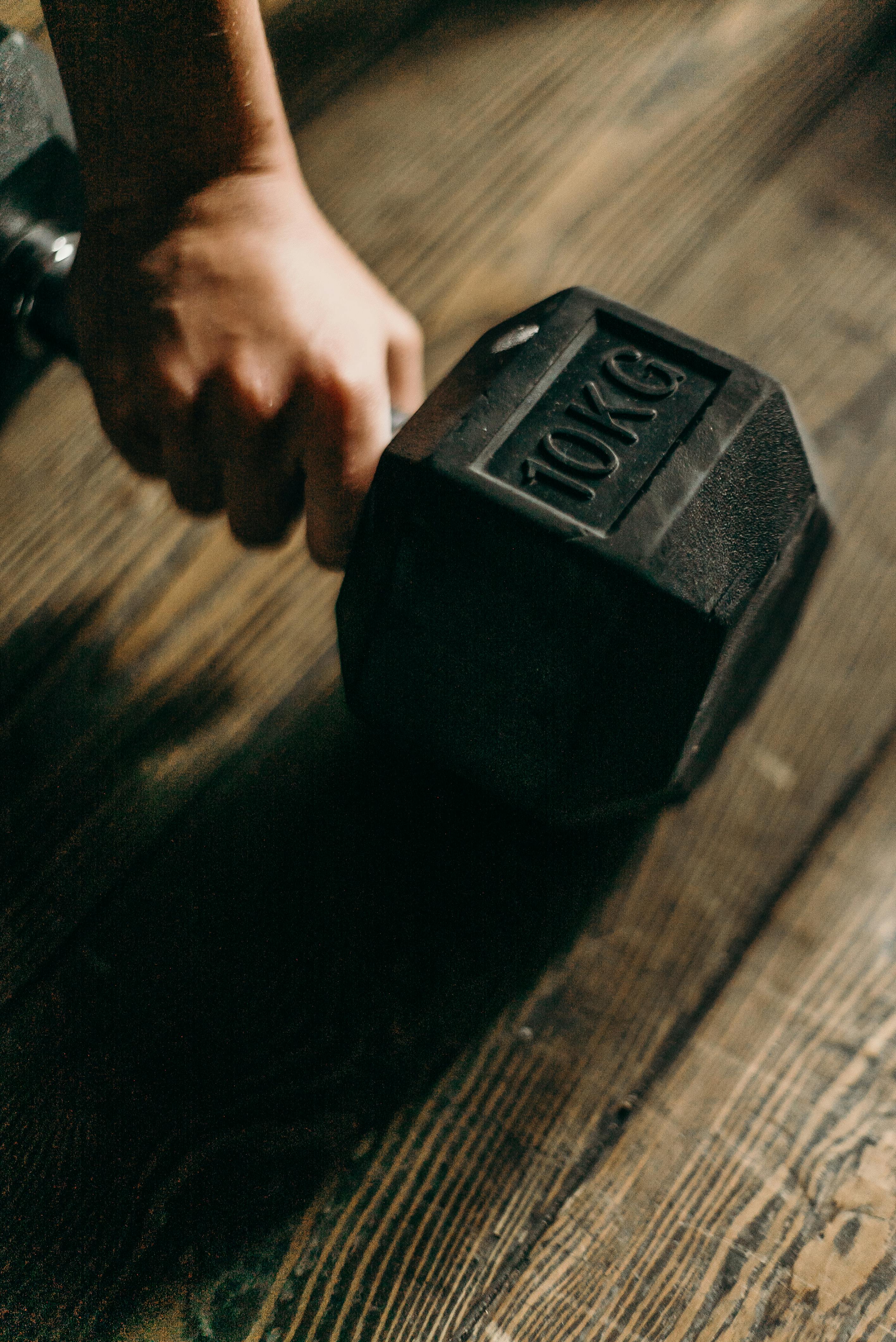Essential Guide to Choosing the Right Creatine Dosage for Effective Results in 2025
Understanding Creatine: What You Need to Know
What is Creatine?
Creatine is a naturally occurring compound found in the muscle cells, primarily made up of three amino acids: arginine, glycine, and methionine. This compound plays a vital role in producing adenosine triphosphate (ATP), the primary energy carrier in the body. For athletes and fitness enthusiasts, supplementing with creatine can enhance performance, increase muscle mass, and improve recovery times. By understanding how creatine works and its effects on the body, you can better optimize your dosage based on your specific goals and needs.
Why Choose Creatine Supplementation?
Creatine supplementation offers several benefits, particularly for those engaged in high-intensity training and endurance sports. It aids in muscle gain, improves sprint performance, and supports quicker recovery after intense training sessions. Research indicates that it can also boost ATP production, facilitating better performance during explosive activities. It’s essential to balance your intake with exercise regimens to maximize its efficacy while avoiding potential side effects such as weight gain or gastrointestinal discomfort.
Types of Creatine Available
There are various creatine types in the market, such as creatine monohydrate, creatine ethyl ester, and buffered creatine. Among these, creatine monohydrate is the most scientifically validated, linked to enhanced performance, muscle growth, and recovery. Choosing the right type can depend on personal preference, dietary restrictions, and specific training objectives. Understanding the differences can help you decide which creatine product will best support your fitness goals.
Scientific Studies on Creatine
Numerous scientific studies have established creatine’s effectiveness in improving athletic performance. Research shows that it increases muscle mass in resistance training, aids in recovery, and enhances performance in short bursts of high-intensity workouts. Examining these studies not only provides insights into the creatine’s benefits but also informs proper dosing strategies tailored to individual circumstances, such as body weight and exercise goals.
Optimal Creatine Dosages for Results
With an overview of creatine and its benefits established, the next step is understanding the appropriate dosage for effective use. This knowledge will help you personalize your supplementation strategy for maximum results.
Daily Recommended Dosage
The standard recommended dosage for creatine typically falls between 3 to 5 grams per day. This dosage allows for maintaining elevated muscle creatine concentrations. However, an initial loading phase of 20 grams daily, divided into four doses for approximately 5-7 days, can significantly increase muscle stores. Following the loading phase, the reduction to the maintenance dose is essential for sustainable results. Adjustments based on individual body weight and training intensity may also optimize your regimen.
Creatine Dosage Based on Body Weight
Calculating your optimal creatine dosage based on body weight can enhance effectiveness. A common recommendation is to use 0.03 grams per kilogram of body weight, translating to approximately 2-5 grams daily for most individuals. Additionally, professional athletes might consider higher dosages, but should monitor results and side effects. This individualized approach helps in tailoring creatine supplementation for each user.
Timing and Frequency of Creatine Intake
When considering creatine intake timing, immediate post-workout consumption is often recommended. This timing aligns with the body’s increased ability to absorb nutrients after intense exercise. Frequency is equally important; ideally, creatine should be consumed consistently daily, regardless of workout days, to maintain optimal muscle saturation and performance.
Signs of Optimal Creatine Efficacy
To determine if your creatine dosage is effective, observe key indicators such as increased muscle strength during workouts, improved endurance, and enhanced recovery times. Additionally, physical signs like quicker recovery following high-intensity training and gradual increases in muscle mass will indicate optimal dosing. Tracking your progress can assist in making necessary adjustments to your regimen, ensuring continued growth and performance enhancements.
Common Concerns and Misconceptions About Creatine
Even with established benefits, misconceptions about creatine can inhibit potential users. Addressing these concerns will help clarify how to effectively incorporate creatine into a fitness regimen.
Creatine and Weight Gain
One common concern is that creatine inevitably leads to weight gain. While initial gains may be noticeable due to increased water retention in muscles, many users find subsequent weight stabilizes or aids in muscle growth without unintended gain. Understanding this process can alleviate worries, aiding in a more positive supplementation experience.
Safety and Side Effects of Creatine
Creatine is generally considered safe for most individuals when taken as directed. However, some may experience mild side effects such as gastrointestinal discomfort or cramping. Staying well-hydrated and adhering to recommended dosages can help mitigate these symptoms. Consulting with health professionals before starting any supplementation is also advisable, especially for individuals with pre-existing health conditions.
Can Anyone Use Creatine?
Creatine can be beneficial for a variety of individuals, from athletes seeking performance enhancement to casual gym-goers aiming for muscle growth. However, personal health status should be considered, especially for individuals with underlying kidney issues or other health concerns. Ultimately, it is essential to assess one’s specific circumstances when deciding on creatine use.
Creatine’s Impact on Hydration
Hydration is a crucial aspect of effective creatine supplementation. While creatine does draw water into muscle cells, leading to potential dehydration, maintaining proper fluid intake is vital. Aim for adequate hydration throughout the day, increasing fluid intake on workout days for optimal performance and health.
Conclusion: Making the Most of Your Creatine Regimen
By understanding the essential details about creatine dosage and its impact on performance, athletes can tailor their supplementation to maximize results. Whether you are a competitive athlete or a recreational gym member, following recommended practices, monitoring progress, and being proactive about hydration will provide valuable support in achieving fitness goals.

FAQs About Creatine Supplementation
What is the best time to take creatine?
Taking creatine post-workout is often recommended due to enhanced absorption. Ensuring consistency in timing is key for maintaining optimal muscle saturation.
How long can I take creatine?
Creatine can be taken continuously for several weeks or even months, though cycling on and off may benefit some users. Close monitoring of effects will help determine the best personal strategy.
Are there any natural food sources of creatine?
Creatine is naturally found in animal products, such as red meats and fish. However, supplementation generally provides a more concentrated and practical way to achieve higher concentrations necessary for performance enhancements.

How can I prevent negative side effects while taking creatine?
Staying hydrated and adhering to recommended dosages significantly aids in reducing the likelihood of negative side effects. Listening to your body and consulting a professional when in doubt is always wise.
Getting Started with Your Creatine Journey
In conclusion, creatine can be an invaluable tool for enhancing athletic performance and muscle growth. By understanding the correct dosage, timing, and potential side effects, you can effectively incorporate creatine into your fitness routine. For more insights and expert recommendations on supplementation, visit our comprehensive articles on [Kreatin für Sportler](https://ajio.info/?p=1438) and [Kreatin und Ernährung](https://ajio.info/?p=1433).
